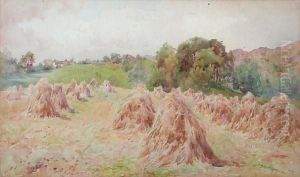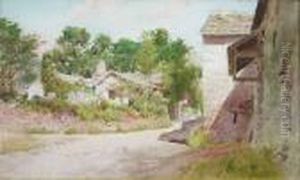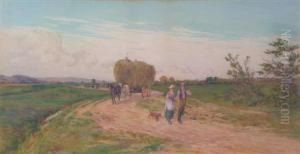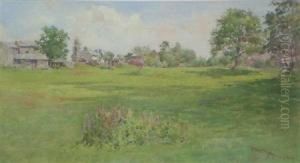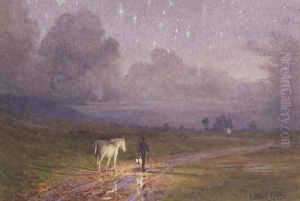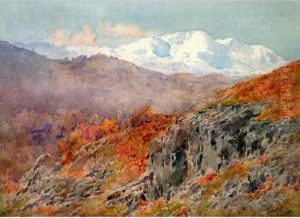Cuthbert Rigby Paintings
Cuthbert Rigby is a less well-known figure in art history, and as such, there are limited details about his life and works readily available. Born in 1744, Rigby was active during a period that saw significant changes in the art world, with movements such as Neoclassicism and Romanticism emerging towards the latter part of the 18th century. However, Rigby’s contribution to art does not seem to align with the most famous artists or movements of his time, and his work has not received the same level of scholarly attention as his contemporaries.
Rigby’s artwork and influence might have been recognized in local circles or among a smaller group of patrons and art enthusiasts. It was not uncommon for artists during this period to have careers that were sustained by the commissions of local aristocracy or the church, without necessarily becoming widely known. His death in 1816 would have come at a time when the art world was experiencing the full force of Romanticism, an era that was characterized by an emphasis on emotion and individualism, a departure from the precise and ordered Neoclassical style that preceded it.
Due to the scarcity of information, Cuthbert Rigby’s specific style, medium, and subject matter are not well-documented. He may have been a painter, sculptor, or involved in another form of artistic expression. Without more concrete historical records or a collection of works that can be attributed to him, Rigby remains a somewhat obscure figure in art history. His legacy, if any, would likely be preserved in local histories or perhaps in the archives of an institution or family that commissioned his work.
The life and work of an artist like Cuthbert Rigby serve as a reminder of the many individuals who have contributed to the rich tapestry of art history, but who may not have achieved widespread fame or recognition. It is possible that future research and discoveries could shed more light on Rigby's artistic output and provide a clearer understanding of his place within the context of his time.





